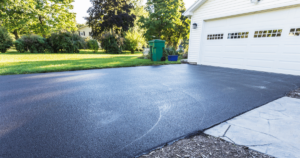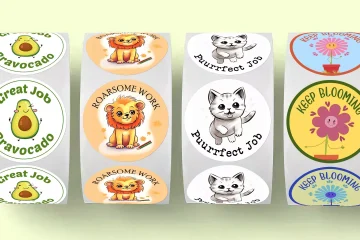Driveway installation costs in the UK vary widely depending on the chosen material, with options ranging from affordable gravel starting at £1,050 for a small area to more expensive materials like resin and concrete costing up to £11,800 for larger driveways. The choice of material not only affects driveway costs but also impacts durability, maintenance requirements, and aesthetic appeal, making it crucial for homeowners to carefully consider their options when planning a new driveway.
Comparing Tarmac and Concrete
Tarmac and concrete are two popular driveway materials with distinct characteristics and costs. Tarmac driveways are generally more affordable, ranging from £25 to £70 per square meter, while concrete driveways cost between £50 and £120 per square meter. Key differences include:
- Durability: Concrete lasts longer (up to 50 years) compared to tarmac (20-30 years).
- Installation: Tarmac can be installed quickly, often in a day, while concrete requires more time to cure.
- Maintenance: Tarmac needs resealing every 3-4 years, while concrete requires less frequent maintenance.
- Aesthetics: Concrete offers more design options and colors, while tarmac is limited to dark shades.
- Weather resistance: Tarmac performs better in cold climates, while concrete is more suitable for hot weather.
When choosing between tarmac and concrete, consider factors such as budget, climate, desired lifespan, and aesthetic preferences to determine the best option for your driveway.
Benefits of Resin Driveways
Resin driveways offer several advantages that make them an attractive option for homeowners:
- Durability: Resin-bound surfaces are highly resistant to cracking, shifting, and potholing, lasting up to 25 years with proper maintenance.
- Permeability: The porous nature of resin driveways allows water to drain through, reducing surface runoff and complying with Sustainable Urban Drainage System (SUDS) regulations.
- Aesthetics: Resin driveways provide a smooth, seamless finish with a wide range of color and aggregate options, enhancing curb appeal.
- Low maintenance: Unlike other materials, resin driveways require minimal upkeep, with occasional sweeping and pressure washing being sufficient.
- Quick installation: Resin driveways can often be installed in as little as 1-2 days, depending on the existing surface.
While resin driveways have a higher initial cost compared to some alternatives, their longevity and low maintenance requirements make them a cost-effective choice in the long run.
Gravel: Long-lasting and Affordable
Gravel driveways offer an exceptional combination of longevity and affordability, making them an attractive option for many homeowners. With proper installation and maintenance, gravel driveways can last up to 100 years, surpassing the lifespan of most other driveway materials.
- The initial cost of a gravel driveway ranges from £1,050 to £7,100, depending on the size.
- Installation is quick and straightforward, often completed in 1-2 days.
- Annual maintenance costs are relatively low, averaging £200-£300.
- Gravel provides good drainage and is environmentally friendly.
- Various types and colors of gravel are available to suit different aesthetic preferences.
While gravel driveways require regular raking and occasional topping up, their long-term value and natural appearance make them a popular choice for both rural and urban properties.
Eco-Friendly Resin Options
Resin driveways have emerged as an environmentally conscious choice for homeowners seeking to reduce their ecological footprint. Eco-friendly resin options offer several benefits that align with sustainable urban development and environmental protection:
- Permeable Surface: Resin-bound driveways are highly permeable, allowing rainwater to drain through naturally. This feature helps to replenish groundwater and reduce surface runoff, which is crucial for flood prevention and maintaining the natural water cycle. The permeable nature of resin driveways makes them compliant with Sustainable Urban Drainage Systems (SuDS) regulations, eliminating the need for additional planning permission.
- Recycled Materials: Many eco-friendly resin driveways incorporate recycled materials in their composition. For instance, Recycle Bound, an innovative product by Oltco, uses a mix of stone aggregates and recycled waste plastic, including plastic drink bottles, food packaging, and straws. This approach helps to combat the issue of plastic waste already in circulation.
- Carbon Footprint Reduction: The longevity of resin driveways, which can last up to 25 years with proper maintenance, contributes to a reduced carbon footprint. This extended lifespan means less frequent replacements and, consequently, lower energy consumption and resource use associated with new installations.
- Natural Filtration: As water percolates through the resin-bound surface, it undergoes a natural filtration process that helps remove pollutants before the water reaches the ground. This feature contributes to improved water quality and supports local ecosystems.
- Preservation of Green Spaces: The versatility of resin-bound surfaces allows for creative designs that can work around existing trees and plants, reducing the need to remove vegetation when installing a new driveway. This helps preserve local biodiversity and maintain green spaces in urban areas.
- UV-Resistant Options: Some eco-friendly resin driveways are available with UV-resistant properties, which help maintain the color and integrity of the surface for longer periods, reducing the need for replacements or repairs.
By choosing eco-friendly resin options, homeowners can significantly reduce their environmental impact while enjoying a durable, attractive, and low-maintenance driveway. These sustainable alternatives not only contribute to individual property value but also play a part in broader environmental conservation efforts.
Tarmac Durability and Maintenance
Tarmac driveways are known for their durability and relatively low maintenance requirements, making them a popular choice for homeowners. When properly installed and maintained, a tarmac driveway can last between 15 to 20 years. However, this lifespan can vary depending on several factors, including traffic volume, weather conditions, and maintenance practices.
The durability of tarmac is largely due to its composition of aggregate and tar, which creates a flexible surface that can withstand temperature changes and heavy loads. Tarmac is particularly resistant to cracking and can bear the weight of multiple vehicles, including cars, vans, and even trucks.
To maximize the lifespan of a tarmac driveway, regular maintenance is crucial. Key maintenance practices include:
- Sealing: Applying a sealant every 3-5 years helps protect the surface from UV rays and water damage.
- Regular cleaning: Remove debris, dirt, and stains promptly to prevent damage to the surface.
- Crack sealing: Address small cracks before they become larger issues.
- Pothole repair: Quick action on potholes prevents further degradation of the surface.
- Drainage management: Ensure proper water runoff to prevent pooling and erosion.
Weather conditions can significantly impact tarmac durability. In the UK, the combination of wet winters and occasional hot summers can be particularly challenging. Extreme heat can cause softening and deformation, while freeze-thaw cycles may lead to cracking.
Traffic volume also plays a role in tarmac longevity. Light residential use may allow a driveway to last 20-25 years, while heavy commercial use might require resurfacing after 10-15 years.
It’s important to note that while tarmac is durable, it may not last as long as some alternatives like concrete. However, its quick installation time (often just one day) and lower cost make it an attractive option for many homeowners.
Concrete Aesthetic Versatility
Concrete driveways offer exceptional aesthetic versatility, allowing homeowners to achieve a wide range of looks that complement their property’s style. Unlike traditional plain gray concrete, modern techniques have transformed this material into a canvas for creative design.
One of the most popular options is stamped concrete, which can mimic the appearance of more expensive materials such as brick, stone, or slate. This technique involves pressing patterns or textures into freshly poured concrete, creating a high-end look at a fraction of the cost. Stamped concrete driveways can be customized with various patterns, from herringbone to cobblestone, allowing homeowners to match their driveway to their home’s architectural style.
Color options for concrete driveways are virtually limitless. Integral color can be mixed into the concrete before pouring, ensuring a consistent hue throughout the material. Alternatively, color hardeners can be applied to the surface during the finishing process, creating a more intense and durable color. Staining is another popular technique that can produce unique, variegated effects, from earthy tones to vibrant hues.
Exposed aggregate finishes offer a textured, natural look by revealing the stones within the concrete mix. This technique not only adds visual interest but also improves traction, making it a practical choice for sloped driveways.
For a more modern aesthetic, polished concrete driveways provide a sleek, glossy finish that can be enhanced with decorative saw cuts or inlaid materials like glass or metal. This high-end look is particularly suited to contemporary home designs.
Concrete’s versatility extends to its ability to incorporate borders, banding, or inlays. These design elements can be used to create visual interest, define spaces, or complement the home’s exterior features. For instance, a contrasting border can frame the driveway, while inlaid patterns can create focal points or guide the eye towards the home’s entrance.
Textured finishes, such as broom or salt finishes, offer subtle variations in appearance while providing additional slip resistance. These finishes can be combined with coloring techniques to create unique, custom looks that blend aesthetics with functionality.
The ability to combine multiple techniques – such as stamping with color and borders – allows for truly custom designs that can significantly enhance a property’s curb appeal. This level of customization is a key advantage of concrete over many other driveway materials, making it an attractive option for homeowners looking to make a statement with their exterior design.
Catch Up on What’s Happening: Creative Released



